“How’s it going in Russia?”
That was Donald Trump’s question, asked “at least a half dozen times” of his former lawyer, Michael Cohen, while on the campaign trail in 2016, according to prepared testimony Cohen plans to
deliver to a House committee today. The president’s oft-repeated question referred to negotiations over a Moscow Tower project that Cohen said continued during the 2016 campaign.
In his remarks, Cohen also calls Trump “racist” and a “conman,” and says that he played a role in helping Trump cover up details ranging from the president’s Vietnam deferments and SAT scores to his extramarital affair with an adult actress.
House committee members will likely be most interested in Cohen’s claims that Trump was aware that Roger Stone, an adviser to the campaign, was in touch with WikiLeaks in an effort to obtain hacked emails from the Democratic National Committee.
Cohen also said he does not know of any “direct evidence” that Trump or his campaign had colluded with Russia.
“But, I have my suspicions,” he said in his statement.
Read Cohen’s full testimony below:
###
TESTIMONY OF MICHAEL D. COHEN COMMITTEE ON OVERSIGHT AND REFORM U.S. HOUSE OF REPRESENTATIVES
FEBRUARY 27, 2019
Chairman Cummings, Ranking Member Jordan, and Members of the Committee, thank you for inviting me here today.
I have asked this Committee to ensure that my family be protected from Presidential threats, and that the Committee be sensitive to the questions pertaining to ongoing investigations. Thank you for your help and for your understanding.
I am here under oath to correct the record, to answer the Committee’s questions truthfully, and to offer the American people what I know about President Trump.
I recognize that some of you may doubt and attack me on my credibility. It is for this reason that I have incorporated into this opening statement documents that are irrefutable, and demonstrate that the information you will hear is accurate and truthful.
Never in a million years did I imagine, when I accepted a job in 2007 to work for Donald Trump, that he would one day run for President, launch a campaign on a platform of hate and intolerance, and actually win. I regret the day I said “yes” to Mr. Trump. I regret all the help and support I gave him along the way.
I am ashamed of my own failings, and I publicly accepted responsibility for them by pleading guilty in the Southern District of New York.
I am ashamed of my weakness and misplaced loyalty – of the things I did for Mr. Trump in an effort to protect and promote him.
I am ashamed that I chose to take part in concealing Mr. Trump’s illicit acts rather than listening to my own conscience.
I am ashamed because I know what Mr. Trump is.
He is a racist.
He is a conman.
He is a cheat.
He was a presidential candidate who knew that Roger Stone was talking with Julian Assange about a WikiLeaks drop of Democratic National Committee emails.
I will explain each in a few moments.
I am providing the Committee today with several documents. These include:
- A copy of a check Mr. Trump wrote from his personal bank account – after he became president – to reimburse me for the hush money payments I made to cover up his affair with an adult film star and prevent damage to his campaign;
- Copies of financial statements for 2011 – 2013 that he gave to such institutions as Deutsche Bank;
- A copy of an article with Mr. Trump’s handwriting on it that reported on the auction of a portrait of himself – he arranged for the bidder ahead of time and then reimbursed the bidder from the account of his non-profit charitable foundation, with the picture now hanging in one of his country clubs; and
- Copies of letters I wrote at Mr. Trump’s direction that threatened his high school, colleges, and the College Board not to release his grades or SAT scores.
I hope my appearance here today, my guilty plea, and my work with law enforcement agencies are steps along a path of redemption that will restore faith in me and help this country understand our president better.
Before going further, I want to apologize to each of you and to Congress as a whole.
The last time I appeared before Congress, I came to protect Mr. Trump.
Today, I’m here to tell the truth about Mr. Trump.
I lied to Congress about when Mr. Trump stopped negotiating the Moscow Tower project in Russia. I stated that we stopped negotiating in January 2016. That was false – our negotiations continued for months later during the campaign.
Mr. Trump did not directly tell me to lie to Congress. That’s not how he operates.
In conversations we had during the campaign, at the same time I was actively negotiating in Russia for him, he would look me in the eye and tell me there’s no business in Russia and then go out and lie to the American people by saying the same thing. In his way, he was telling me to lie.
There were at least a half-dozen times between the Iowa Caucus in January 2016 and the end of June when he would ask me “How’s it going in Russia?” – referring to the Moscow Tower project.
You need to know that Mr. Trump’s personal lawyers reviewed and edited my statement to Congress about the timing of the Moscow Tower negotiations before I gave it.
To be clear: Mr. Trump knew of and directed the Trump Moscow negotiations throughout the campaign and lied about it. He lied about it because he never expected to win the election. He also lied about it because he stood to make hundreds of millions of dollars on the Moscow real estate project.
And so I lied about it, too – because Mr. Trump had made clear to me, through his personal statements to me that we both knew were false and through his lies to the country, that he wanted me to lie. And he made it clear to me because his personal attorneys reviewed my statement before I gave it to Congress.
Over the past two years, I have been smeared as “a rat” by the President of the United States. The truth is much different, and let me take a brief moment to introduce myself.
My name is Michael Dean Cohen.
I am a blessed husband of 24 years and a father to an incredible daughter and son. When I married my wife, I promised her that I would love her, cherish her, and protect her. As my father said countless times throughout my childhood, “you my wife, and you my children, are the air that I breathe.”
To my Laura, my Sami, and my Jake, there is nothing I wouldn’t do to protect you.
I have always tried to live a life of loyalty, friendship, generosity, and compassion – qualities my parents ingrained in my siblings and me since childhood. My father survived the Holocaust thanks to the compassion and selfless acts of others. He was helped by many who put themselves in harm’s way to do what they knew was right.
That is why my first instinct has always been to help those in need. Mom and Dad … I am sorry that I let you down. As many people that know me best would say, I am the person they would call at 3 a.m. if they needed help. I proudly remember being the emergency contact for many of my children’s friends when they were growing up because their parents knew that I would drop everything and care for them as if they were my own.
Yet, last fall I pled guilty in federal court to felonies for the benefit of, at the direction of, and in coordination with Individual #1.
For the record: Individual #1 is President Donald J. Trump.
It is painful to admit that I was motivated by ambition at times. It is even more painful to admit that many times I ignored my conscience and acted loyal to a man when I should not have. Sitting here today, it seems unbelievable that I was so mesmerized by Donald Trump that I was willing to do things for him that I knew were absolutely wrong.
For that reason, I have come here to apologize to my family, to the government, and to the American people.
Accordingly, let me now tell you about Mr. Trump.
I got to know him very well, working very closely with him for more than 10 years, as his Executive Vice President and Special Counsel and then personal attorney when he became President. When I first met Mr. Trump, he was a successful entrepreneur, a real estate giant, and an icon. Being around Mr. Trump was intoxicating. When you were in his presence, you felt like you were involved in something greater than yourself — that you were somehow changing the world.
I wound up touting the Trump narrative for over a decade. That was my job. Always stay on message. Always defend. It monopolized my life. At first, I worked mostly on real estate developments and other business transactions.
Shortly thereafter, Mr. Trump brought me into his personal life and private dealings. Over time, I saw his true character revealed.
Mr. Trump is an enigma. He is complicated, as am I. He has both good and bad, as do we all. But the bad far outweighs the good, and since taking office, he has become the worst version of himself. He is capable of behaving kindly, but he is not kind. He is capable of committing acts of generosity, but he is not generous. He is capable of being loyal, but he is fundamentally disloyal.
Donald Trump is a man who ran for office to make his brand great, not to make our country great. He had no desire or intention to lead this nation – only to market himself and to build his wealth and power. Mr. Trump would often say, this campaign was going to be the “greatest infomercial in political history.”
He never expected to win the primary. He never expected to win the general election. The campaign – for him – was always a marketing opportunity.
I knew early on in my work for Mr. Trump that he would direct me to lie to further his business interests. I am ashamed to say, that when it was for a real estate mogul in the private sector, I considered it trivial. As the President, I consider it significant and dangerous.
But in the mix, lying for Mr. Trump was normalized, and no one around him questioned it. In fairness, no one around him today questions it, either.
A lot of people have asked me about whether Mr. Trump knew about the release of the hacked Democratic National Committee emails ahead of time. The answer is yes.
As I earlier stated, Mr. Trump knew from Roger Stone in advance about the WikiLeaks drop of emails.
In July 2016, days before the Democratic convention, I was in Mr. Trump’s office when his secretary announced that Roger Stone was on the phone. Mr. Trump put Mr. Stone on the speakerphone. Mr. Stone told Mr. Trump that he had just gotten off the phone with Julian Assange and that Mr. Assange told Mr. Stone that, within a couple of days, there would be a massive dump of emails that would damage Hillary Clinton’s campaign.
Mr. Trump responded by stating to the effect of “wouldn’t that be great.”
Mr. Trump is a racist. The country has seen Mr. Trump court white supremacists and bigots. You have heard him call poorer countries “shitholes.”
In private, he is even worse.
He once asked me if I could name a country run by a black person that wasn’t a “shithole.” This was when Barack Obama was President of the United States.
While we were once driving through a struggling neighborhood in Chicago, he commented that only black people could live that way. And, he told me that black people would never vote for him because they were too stupid.
And yet I continued to work for him.
Mr. Trump is a cheat.
As previously stated, I’m giving the Committee today three years of President Trump’s financial statements, from 2011-2013, which he gave to Deutsche Bank to inquire about a loan to buy the Buffalo Bills and to Forbes. These are Exhibits 1a, 1b, and 1c to my testimony.
It was my experience that Mr. Trump inflated his total assets when it served his purposes, such as trying to be listed among the wealthiest people in Forbes, and deflated his assets to reduce his real estate taxes.
I am sharing with you two newspaper articles, side by side, that are examples of Mr. Trump inflating and deflating his assets, as I said, to suit his financial interests. These are Exhibit 2 to my testimony.
As I noted, I’m giving the Committee today an article he wrote on, and sent me, that reported on an auction of a portrait of Mr. Trump. This is Exhibit 3A to my testimony.
Mr. Trump directed me to find a straw bidder to purchase a portrait of him that was being auctioned at an Art Hamptons Event. The objective was to ensure that his portrait, which was going to be auctioned last, would go for the highest price of any portrait that afternoon. The portrait was purchased by the fake bidder for $60,000. Mr. Trump directed the Trump Foundation, which is supposed to be a charitable organization, to repay the fake bidder, despite keeping the art for himself. Please see Exhibit 3B to my testimony.
And it should come as no surprise that one of my more common responsibilities was that Mr. Trump directed me to call business owners, many of whom were small businesses, that were owed money for their services and told them no payment or a reduced payment would be coming. When I advised Mr. Trump of my success, he actually reveled in it.
And yet, I continued to work for him.
Mr. Trump is a conman.
He asked me to pay off an adult film star with whom he had an affair, and to lie to his wife about it, which I did.
Lying to the First Lady is one of my biggest regrets. She is a kind, good person. I respect her greatly – and she
did not deserve that.
I am giving the Committee today a copy of the $130,000 wire transfer from me to Ms. Clifford’s attorney during the closing days of the presidential campaign that was demanded by Ms. Clifford to maintain her silence about her affair with Mr. Trump. This is Exhibit 4 to my testimony.
Mr. Trump directed me to use my own personal funds from a Home Equity Line of Credit to avoid any money being traced back to him that could negatively impact his campaign. I did that, too – without bothering to consider whether that was improper, much less whether it was the right thing to do or how it would impact me, my family, or the public.
I am going to jail in part because of my decision to help Mr. Trump hide that payment from the American people before they voted a few days later.
As Exhibit 5 to my testimony shows, I am providing a copy of a $35,000
check that President Trump personally signed from his personal bank account on August 1, 2017 – when he was President of the United States – pursuant to the cover-up, which was the basis of my guilty plea, to reimburse me – the word used by Mr. Trump’s TV lawyer — for the illegal hush money I paid on his behalf. This $35,000 check was one of 11 check installments that was paid throughout the year – while he was President.
The President of the United States thus wrote a personal check for the payment of hush money as part of a criminal scheme to violate campaign finance laws. You can find the details of that scheme, directed by Mr. Trump, in the pleadings in the U.S. District Court for the Southern District of New York.
So picture this scene – in February 2017, one month into his presidency, I’m visiting President Trump in the Oval Office for the first time. It’s truly awe-inspiring, he’s showing me around and pointing to different paintings, and he says to me something to the effect of … Don’t worry, Michael, your January and February reimbursement checks are coming. They were FedExed from New York and it takes a while for that to get through the White House system. As he promised, I received the first check for the reimbursement of $70,000 not long thereafter.
When I say conman, I’m talking about a man who declares himself brilliant but directed me to threaten his high school, his colleges, and the College Board to never release his grades or SAT scores.
As I mentioned, I’m giving the Committee today copies of a letter I sent at Mr. Trump’s direction threatening these schools with civil and criminal actions if Mr. Trump’s grades or SAT scores were ever disclosed without his permission. These are Exhibit 6.
The irony wasn’t lost on me at the time that Mr. Trump in 2011 had strongly criticized President Obama for not releasing his grades. As you can see in Exhibit 7, Mr. Trump declared “Let him show his records” after calling President Obama “a terrible student.”
The sad fact is that I never heard Mr. Trump say anything in private that led me to believe he loved our nation or wanted to make it better. In fact, he did the opposite.
When telling me in 2008 that he was cutting employees’ salaries in half – including mine – he showed me what he claimed was a $10 million IRS tax refund, and he said that he could not believe how stupid the government was for giving “someone like him” that much money back.
During the campaign, Mr. Trump said he did not consider Vietnam Veteran, and Prisoner of War, Senator John McCain to be “a hero” because he likes people who weren’t captured. At the same time, Mr. Trump tasked me to handle the negative press surrounding his medical deferment from the Vietnam draft.
Mr. Trump claimed it was because of a bone spur, but when I asked for medical records, he gave me none and said there was no surgery. He told me not to answer the specific questions by reporters but rather offer simply the fact that he received a medical deferment.
He finished the conversation with the following comment. “You think I’m stupid, I wasn’t going to Vietnam.”
I find it ironic, President Trump, that you are in Vietnam right now.
And yet, I continued to work for him.
Questions have been raised about whether I know of direct evidence that Mr. Trump or his campaign colluded with Russia. I do not. I want to be clear. But, I have my suspicions.
Sometime in the summer of 2017, I read all over the media that there had been a meeting in Trump Tower in June 2016 involving Don Jr. and others from the campaign with Russians, including a representative of the Russian government, and an email setting up the meeting with the subject line, “Dirt on Hillary Clinton.” Something clicked in my mind.
I remember being in the room with Mr. Trump, probably in early June 2016, when something peculiar happened. Don Jr. came into the room and walked behind his father’s desk – which in itself was unusual. People didn’t just walk behind Mr. Trump’s desk to talk to him. I recalled Don Jr. leaning over to his father and speaking in a low voice, which I could clearly hear, and saying: “The meeting is all set.” I remember Mr. Trump saying, “Ok good … let me know.”
What struck me as I looked back and thought about that exchange between Don Jr. and his father was, first, that Mr. Trump had frequently told me and others that his son Don Jr. had the worst judgment of anyone in the world. And also, that Don Jr. would never set up any meeting of any significance alone – and certainly not without checking with his father.
I also knew that nothing went on in Trump world, especially the campaign, without Mr. Trump’s knowledge and approval. So, I concluded that Don Jr. was referring to that June 2016 Trump Tower meeting about dirt on Hillary with the Russian representative when he walked behind his dad’s desk that day — and that Mr. Trump knew that was the meeting Don Jr. was talking about when he said, “That’s good … let me know.”
Over the past year or so, I have done some real soul searching. I see now that my ambition and the intoxication of Trump power had much to do with the bad decisions I made.
To you, Chairman Cummings, Ranking Member Jordan, the other members of this Committee, and the other members of the House and Senate, I am sorry for my lies and for lying to Congress.
To our nation, I am sorry for actively working to hide from you the truth about Mr. Trump when you needed it most.
For those who question my motives for being here today, I understand. I have lied, but I am not a liar. I have done bad things, but I am not a bad man. I have fixed things, but I am no longer your “fixer,” Mr. Trump.
I am going to prison and have shattered the safety and security that I tried so hard to provide for my family. My testimony certainly does not diminish the pain I caused my family and friends – nothing can do that. And I have never asked for, nor would I accept, a pardon from President Trump.
And, by coming today, I have caused my family to be the target of personal, scurrilous attacks by the President and his lawyer – trying to intimidate me from appearing before this panel. Mr. Trump called me a “rat” for choosing to tell the truth – much like a mobster would do when one of his men decides to cooperate with the government.
As Exhibit 8 shows, I have provided the Committee with copies of Tweets that Mr. Trump posted, attacking me and my family – only someone burying his head in the sand would not recognize them for what they are: encouragement to someone to do harm to me and my family.
I never imagined that he would engage in vicious, false attacks on my family – and unleash his TV-lawyer to do the same. I hope this committee and all members of Congress on both sides of the aisle will make it clear:
As a nation, we should not tolerate attempts to intimidate witnesses before congress and attacks on family are out of bounds and not acceptable.
I wish to especially thank Speaker Pelosi for her statements in Exhibit 9 to protect this institution and me, and the Chairman of the House Permanent Select Committee on Intelligence Adam Schiff and Chairman Cummings for likewise defending this institution and my family against the attacks by Mr. Trump, and also the many Republicans who have admonished the President as well.
I am not a perfect man. I have done things I am not proud of, and I will live with the consequences of my actions for the rest of my life.
But today, I get to decide the example I set for my children and how I attempt to change how history will remember me. I may not be able to change the past, but I can do right by the American people here today.
Thank you for your attention. I am happy to answer the Committee’s questions.
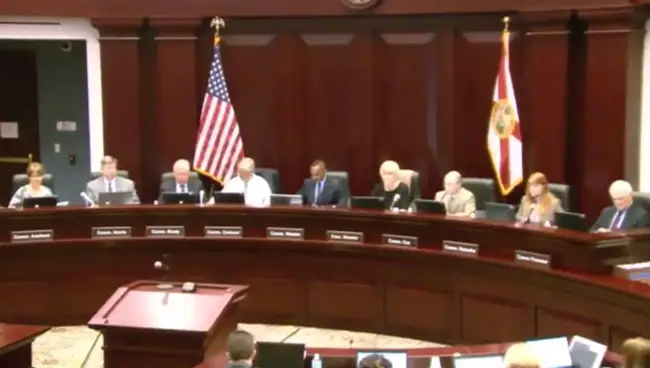


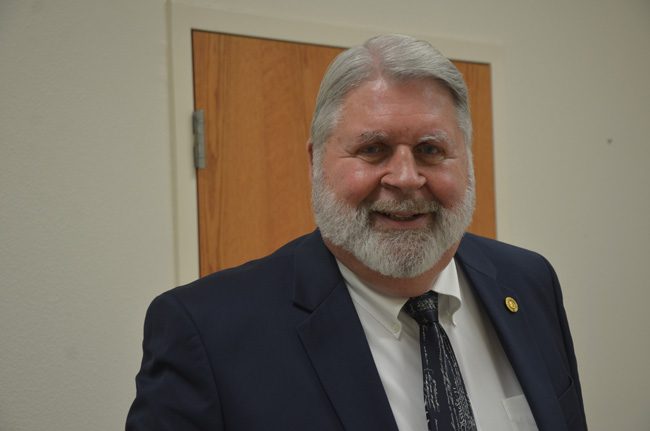
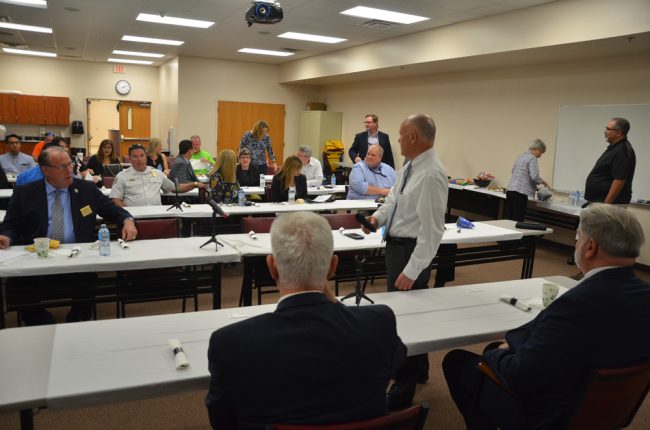
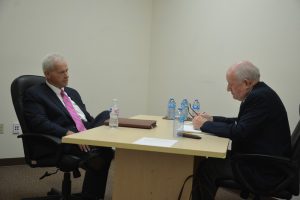
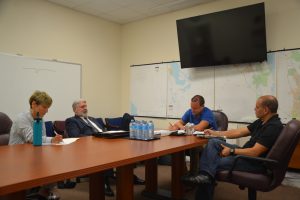
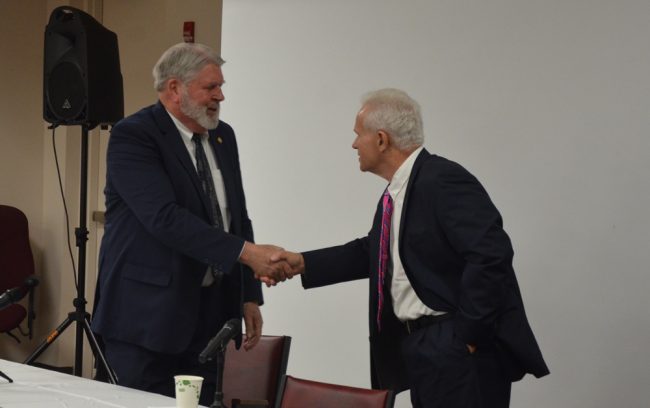























![Units from the Florida National Guard were sent to the Florida Panhandle to help with the recovery from Hurricane Michael. A new leader of the guard is scheduled to be named just as an investigation into sexual misconduct there is underway. [Times (2018)] Units from the Florida National Guard were sent to the Florida Panhandle to help with the recovery from Hurricane Michael. A new leader of the guard is scheduled to be named just as an investigation into sexual misconduct there is underway. [Times (2018)]](http://www.tampabay.com/storyimage/HI/20190329/ARTICLE/190329609/AR/0/AR-190329609.jpg&MaxW=1200&Q=66)
















Good luck with that!